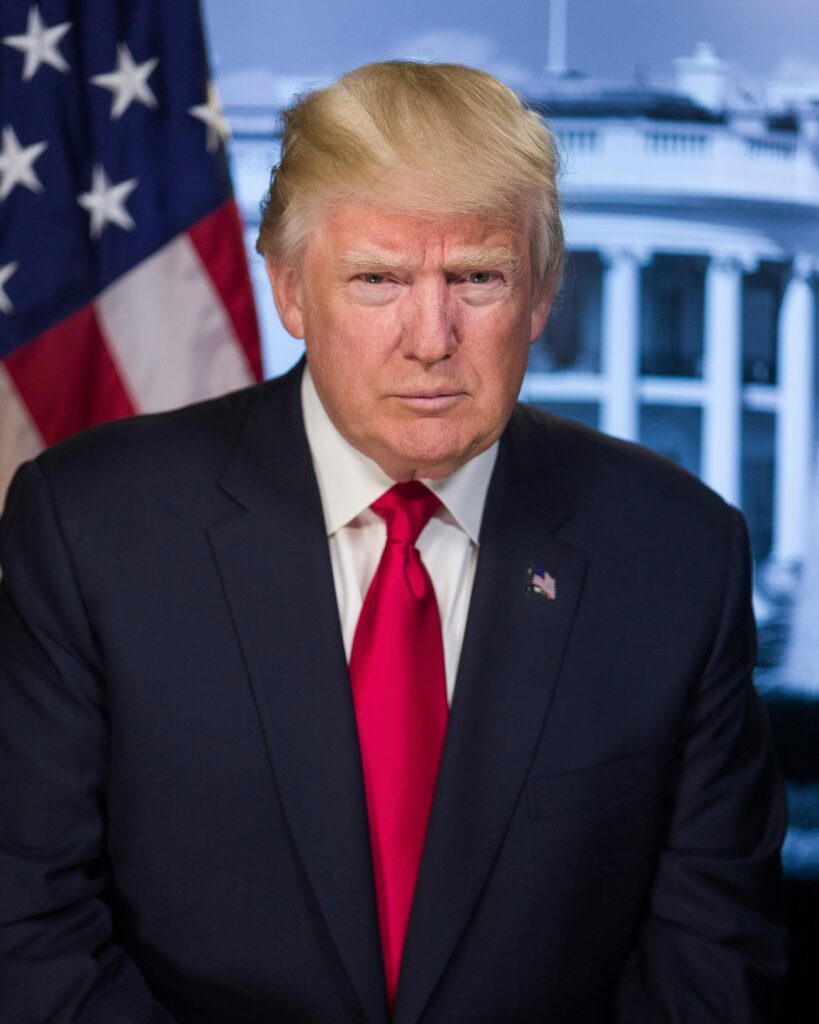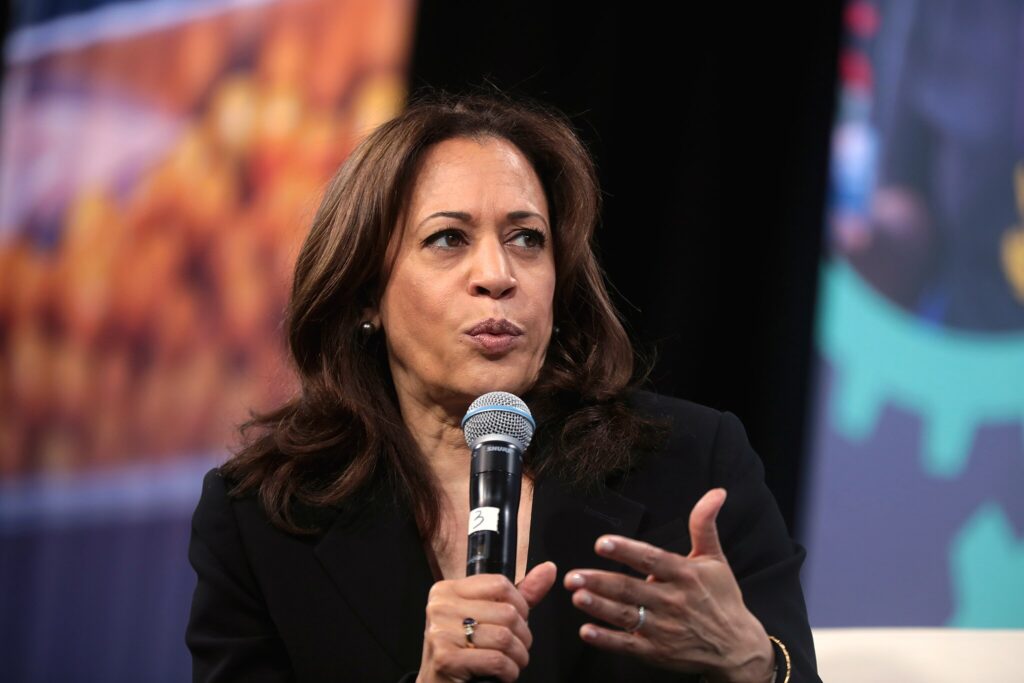When Kamala Harris became the Democratic Party nominee for U.S. president, I was initially apprehensive. While I remain repulsed by Republican contender Donald Trump’s lack of empathy, unbridled narcissism and many of his past and proposed policies, Harris has a checkered record on my biggest culture war bugaboo, namely how beholden or not she is (or will be) to the progressive, anti-Israel left wing of her party.
Harris’s performance in last week’s U.S. Presidential debate put my worries to rest (mostly). And compared to Trump, who rambled, demeaned and lied, Harris was sharp, focused and, ultimately, presidential.
I still have some not insignificant reservations, and I truly wish these weren’t the only two candidates running, but Harris will be getting my vote.
That’s not where I started.
When Harris was first “anointed” as the then-presumptive nominee, I was ready to write a column on why I couldn’t vote for either Trump or Harris. For the first time in my voting life, I planned to say, I was going to sit this election out.
After all, during the 2019 primaries, Harris was dubbed by The Hill, “the second-most liberal Democratic senator to serve in the Senate in the 21st century.” That’s far from where I’m holding these days. Harris has since tried to walk back her woke bonafides, such as her former support for “defunding the police,” though I don’t entirely trust her to not return to those progressive roots once elected.
Trump, on the other hand, while a nightmare for his domestic policies, was actually pretty good when it came to foreign policy, whether by design or accident. From a purely Israeli perspective, I briefly considered holding my nose, checking my moral compass at the door, and voting for the man in November.
Still, while Harris’s statements on Israel’s seven-front war have not been as supportive as I’d prefer, she has at least tried to check the right boxes. Her husband, first gentleman Doug Emhoff’s reaction to the execution of the six hostages, including Israeli-American Hersh Goldberg-Polin, was as authentic as it was gutting. He seems like a mensch. Too bad he can’t be the vice-presidential candidate instead of Tim Walz, a likable guy who nevertheless opined about the post-October 7 antisemitic protesters that they “are speaking out for all the right reasons.”
During last week’s debate, Harris did exactly as she promised when she boasted about being a prosecutor (she was formerly California’s attorney-general) taking on a convicted felon: She relentlessly goaded Trump who fell for the bait and promptly lost the plot.
After Harris demeaned Trump’s rallies by saying that “people leave early out of exhaustion and boredom,” an agitated Trump began ranting about a debunked conspiracy theory that, in Springfield, Ohio, Haitian immigrants “are eating the pets of the people who live there… They’re eating the dogs…they’re eating the cats.”
Trump continued his parade of derangement by arguing that Walz wants to execute babies who are already born and that Harris supports paying for “transgender operations on illegal aliens in prison” (that one is actually true). At least Trump didn’t recycle his comments from an event organized by the conservative Turning Point Action where he proclaimed, “Christians… you won’t have to vote anymore…four more years [and] it will be fixed.”
When it comes to Israel, Harris repeated the assertion that she has over her “entire career and life supported Israel” and that “I will always give Israel the ability to defend itself.” (I was less comfortable with her next sentence where she repeated the mantra of a two-state solution, something most Israelis and Palestinians don’t believe is possible for the foreseeable future.)
But Trump’s retort that Harris “hates Israel” and that “if she’s president…Israel will not exist within two years” was more fear-mongering than fact, as was his supposition that when you “look at what’s going on in the Middle East…this would have never happened” under a Trump presidency.
While that’s clearly electioneering hyperbole, it emphasizes my biggest worry about a second Trump presidency: his unpredictability. You never know what’s going to come out of his mouth next.
While right now, Trump backers argue their candidate is more pro-Israel than Harris, imagine, for example, if Israeli Prime Minister Benjamin Netanyahu were caught on a hot mic referring to Trump’s appearance in, say, a disparaging way, how quickly Trump would turn on the premier. He did, after all, essentially boycott Netanyahu after the latter dared to call Biden to congratulate him on his 2019 win.
The Republican Party’s isolationist tendencies could spell more trouble for Israel going forward than any past benefits, such as moving the U.S. embassy to Jerusalem or spearheading the Abraham Accords. Trump may have claimed in 2017 to be “the least antisemitic person that you’ve ever seen,” but hosting white supremacists and Holocaust deniers like Nick Fuentes and Kanye West doesn’t bode well for the Jews.
Harris’s positions on healthcare, abortion and taxation align with my political leanings on U.S. domestic challenges. I still worry that she may entertain enacting a ban on arms sales to Israel, a policy that groups like the pro-Hamas “Uncommitted” are advocating for. Her admonition – that bombs and missiles should be limited to “defensive” purposes – could be “weaponized,” so to speak, by our enemies. Jerusalem Post editor-in-chief Zvika Klein rightly worried in a recent column that Harris could become increasingly “susceptible to the influence of progressive leaders who have been critical of Israel.”
But between a candidate who on the debate stage exuded confidence and clarity and one who presents, as the Post’s David Brinn writes, as “an unhinged loose cannon whose moods and utterances flit with the wind,” I’ll take my cue from Taylor Swift, who endorsed Harris following the debate, and whose lyrics from her most memorable song could be applied to Trump’s attempt to retake the presidency:
“We are never, ever getting back together.”
I first reluctantly endorsed Harris at The Jerusalem Post.



